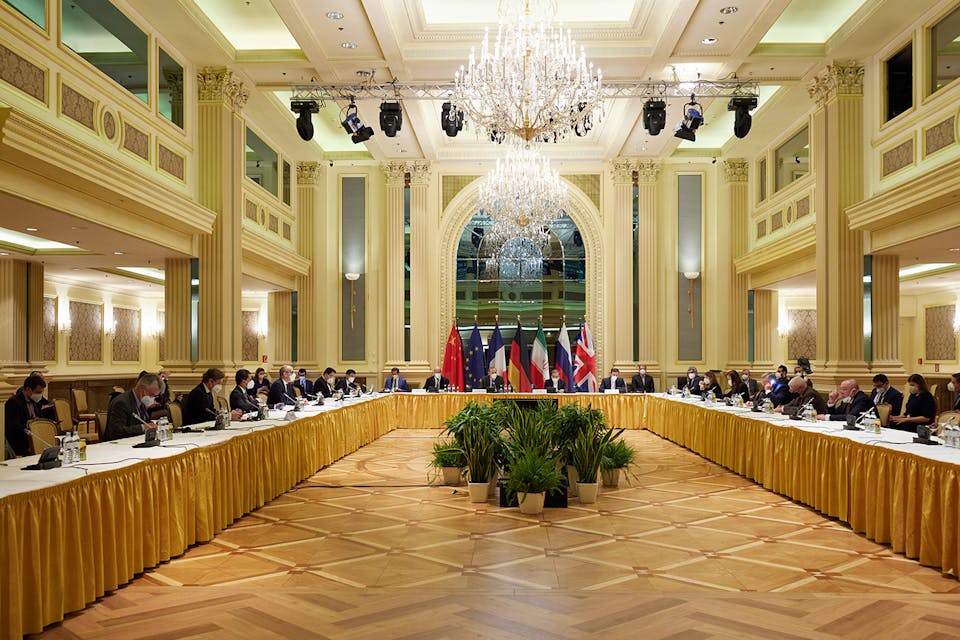
May 10, 2021
How Governors and State Legislatures Can Mitigate the White House’s Iran Strategy
A few months ago it seemed that the Biden administration would pursue a more moderate version of Obama's Iran strategy. Now it's poised to make even greater concessions.
President Biden’s negotiators are camped out in Vienna today, overseeing what appears to be a financial rescue package for the world’s leading state sponsor of terrorism. While a few months ago there was reason to believe that the current White House would pursue a more moderate version of the Obama administration’s Iran strategy, it now seems poised to make even greater concessions to the Islamic Republic than its predecessor. According to news reports and background briefings by senior administration officials, the United States is offering to rejoin the 2015 Iran nuclear deal and lift terrorism sanctions on Iran’s central bank, oil company, tanker company, and several sectors of Iran’s economy in exchange for Iran agreeing to return to compliance with the pact’s terms.
Under the arrangement, Iran would not have to agree to any new limits on its sponsorship of terrorism or development of nuclear-capable missiles—nor would the original nuclear deal be strengthened or extended. The good news, however, is that Congress as well as state and local governments have significant leeway to counteract some of the mistakes the White House appears ready to make. I’ll explain presently, but first it’s important to understand exactly what the dangers are.
The Joint Comprehensive Plan of Action (JCPOA), as the nuclear deal is formally known, faced bipartisan opposition in Congress for good reasons. The deal reversed longstanding international demands that Iran halt all activities related to the enrichment of uranium and fully account for its past work on nuclear weapons. Although nuclear negotiations involve many complex technicalities, the reason for this demand is simple: the same centrifuges that can produce the low-enriched uranium needed for civilian purposes can also produce the highly enriched uranium needed for nuclear weapons. Thus the United States normally insists that countries seeking nuclear energy forgo domestic enrichment—what’s known as the nonproliferation “gold standard.” The Iran deal, by contrast, only limits the number and types of centrifuges the Islamic Republic can operate—and only for a limited amount of time. In other words, it slows down rather than blocks its path to bomb—and that’s assuming Tehran cooperates in the first place.